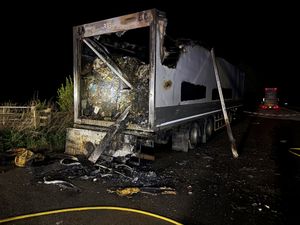West Mercia Police reviewing crimes in forensics alert
West Mercia Police are reviewing a number of cases after a criminal investigation revealed that data relating to 6,000 forensic samples nationwide could have been manipulated.

The force said it has received a list of cases affected by the investigation, which is being carried out by Greater Manchester Police, but would not reveal the amount or the nature of the cases involved.
It is known that the 6,000 samples potentially affected, which come from police forces across the country, include those from murder, rape, and assault cases, although the majority are from cases such as drug driving.
Nick McCoy, head of forensic services for West Mercia Police, said: "Along with other police forces across the country we have received a list of affected cases. We are currently carrying out a review of these cases and as such, we are unable to comment further at this time.”
There are concerns that the issue could have led to miscarriages of justice or will cause difficulties proceeding with prosecutions.
It comes after Greater Manchester Police announced a criminal investigation into forensic test results issued by Randox Testing Services (RTS) earlier this year.
The company had carried out forensic testing for a number of police forces across the country.
A spokesman for Greater Manchester Police said: "Our investigation concerns the manipulation of quality control data around sample analysis. We do not have any information or evidence to suggest that samples themselves have been directly tampered with."
Two men, a 47 year-old and a 31 year-old, have been arrested on suspicion of perverting the course of justice and released on bail until July 18 and 25, pending further inquiries.
DCC James Vaughan, National Police Chiefs’ Council lead for the forensic marketplace, said: “The integrity of forensic science in criminal justice is crucial in the investigation and prosecution of crime and keeping people safe.
“This is a serious breach of the very rigorous professional standards set by the Forensic Science Regulator for staff and organisations working in this critical field.
“We now have a clearer picture of the scale of this data manipulation and have been able to set out a plan of action in partnership with RTS, the Forensic Science Regulator, and the CPS. The numbers affected could change as our investigations progress.
“We are prioritising the most serious and pressing cases but all cases where there could have been an impact on prosecution will be assessed, retested and appropriate action taken.
“It is important that we nationally prioritise retesting of samples to ensure that resubmitted samples do not flood the market and impact on other important ongoing cases.
“While there has been limited retesting to date, the evidence has shown that in the vast majority of cases, the original reporting was accurate. ”





